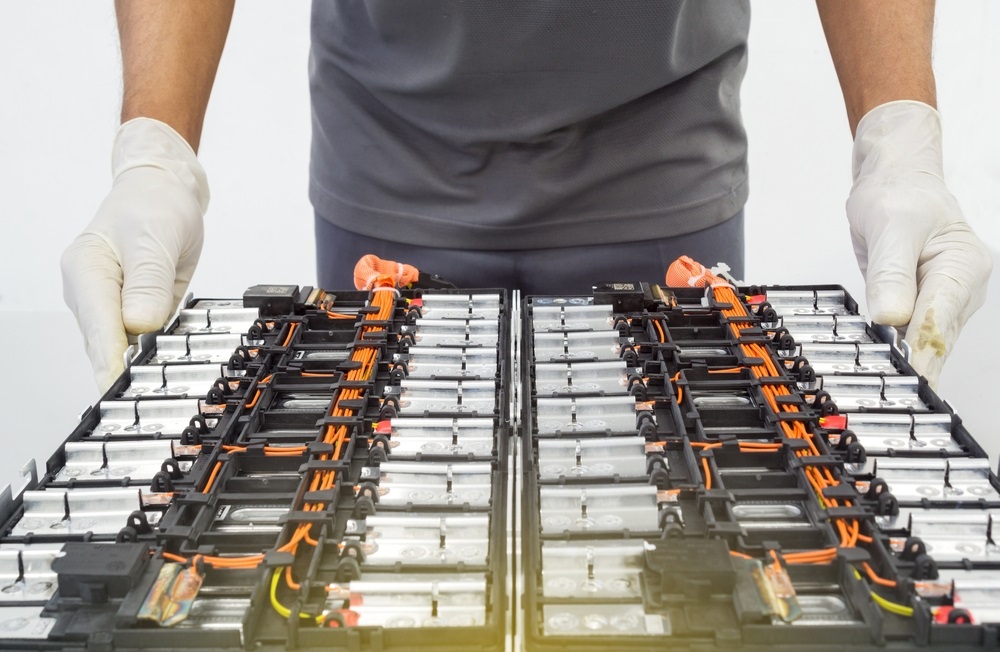How Long Do Electric Car Batteries Last? Complete Details
As electric vehicles (EVs) continue to gain popularity, one of the most common questions among potential buyers and current owners is:
How long does car battery last?
Fortunately, advancements in battery technology have made electric car batteries more resilient and long-lasting than ever before.
In this article, we will delve into the electric car battery lifespan, what they are made of, and provide practical tips to extend their longevity and how to dispose of them at the end of their lifecycle.
Debunking Myths || Why Electric Car Batteries Outlast Your Phones
“How long do cars last?” is a common question among electric car owners, as they seek to understand the car battery lifespan of their vehicles.
Many people express scepticism about the lifespan of electric car batteries due to their experiences with other rechargeable batteries, such as those in smartphones and laptops. However, comparing these consumer electronics batteries to those used in electric cars is misleading.
Resilience & Longevity of Electric Car Batteries
How Long Does A Car Battery Last?
Gone are the days when electric car batteries had a short lifespan, requiring frequent replacements. Today’s electric vehicle batteries are designed to be durable and offer impressive longevity.
According to studies and real-world data, the average car battery life ranges from 10 to 15 years, depending on various factors such as usage patterns, charging habits, and climate conditions.
Some electric car manufacturers even provide warranties of up to 8 years or more for their electric car battery life, showcasing the confidence they have in their products.
What Are Electric Car Batteries Made Of?
To understand the longevity and average car battery life of EVs, it’s important to know what they are made of. The most common type of battery used in electric vehicles is the lithium-ion battery. Electric car batteries are primarily made of lithium-ion cells, which are composed of different layers of materials.
These materials often include lithium cobalt oxide, lithium iron phosphate, or other combinations of metals. This unique composition allows electric car batteries to efficiently store and deliver energy, powering the vehicle’s electric motor.
Electric Car Battery vs. Phone Battery: A Comparison
While both electric car batteries and smartphone batteries use lithium-ion technology, there are significant differences between the two in terms of size, capacity, and lifespan. Here’s a quick comparison:
| Electric Car Battery | Phone Battery | |
| Size | Larger and more robust | Smaller and compact |
| Capacity | Higher capacity | Lower capacity |
| Lifespan | Longer lifespan | Shorter lifespan |
| Purpose | Designed for daily use | Designed for frequent charging |
How Long Does Car Battery Last in Electric Cars?
On average, electric car batteries can last for several years. Most manufacturers offer warranties on their electric vehicle batteries, typically ranging from 8 to 10 years or a specific number of miles driven (e.g., 100,000 miles). However, it’s important to note that battery degradation over time is normal.
Factors Affecting Electric Car Battery Life
The car battery lifespan of electric cars can vary based on several factors. These include:
- Battery Chemistry: EV Car battery lifespan varies with different battery chemistries. Lithium iron phosphate (LiFePO4) batteries have a longer car battery lifespan compared to lithium cobalt oxide (LiCoO2) batteries.
- Charging Habits: Every day fast charging and deep discharging can accelerate battery degradation. Opting for slower charging and avoiding letting the battery drain completely can help prolong the car battery lifespan.
- Climate Conditions: Extreme temperatures, both hot and cold, can affect electric car battery life and performance. Battery management systems in modern EVs help mitigate these effects, but extreme conditions can still impact overall longevity.
- Maintenance: Regular maintenance, including software updates and ensuring proper cooling systems, can contribute to maintaining battery health.
Knowing Your Electric Car’s Range
Understanding the range of your electric car is crucial for managing the car battery lifespan. Most electric vehicles display an estimated range based on the current state of charge and driving conditions.
It’s important to note that the range can fluctuate depending on factors such as speed, weather, and terrain. By being mindful of your vehicle’s range and planning to charge stops accordingly, you can optimize battery usage, enhance average car battery life and ensure a stress-free driving experience.
How to Extend the Battery Life of Your Electric Car
While the car battery lifespan of electric cars is impressive, there are steps you can take to extend their longevity even further. Here are some best practices for maximizing the EV car battery lifespan:
EV Battery Charging Best Practices
When it comes to determining how long cars last, several factors come into play, including maintenance, driving habits, and the overall quality of the vehicle.
Proper charging habits can significantly impact the electric car battery lifespan. Here are a few charging best practices to follow to enhance average car battery life:
A. Don’t Charge Your EV Every Night
Contrary to popular belief, it’s not necessary to charge your electric car every night, especially if you have sufficient range for your daily needs. Frequent charging at high levels can lead to increased battery degradation over time. It’s recommended to charge your EV when the battery level drops to around 20-30% to enhance the average car battery life.
B. Stay Between 20 ─ 80% Charge
Keeping your battery within the range of 20-80% charge is considered optimal for electric car battery life and health. Avoid fully depleting or fully charging the battery regularly. Maintaining a moderate charge level helps reduce stress on the battery and prolong its lifespan.
- Control Battery State Of Charge For Long Storage
If you plan to store your electric car for an extended period, it’s crucial to maintain the battery at an optimal state of charge to maintain the average car battery life. Most manufacturers recommend keeping the battery level between 40-60% during long periods of inactivity. This practice helps prevent over-discharge or overcharging, which can negatively impact electric car battery life and health.
Does Speed Affect EV Range?
Yes, speed can affect the range of an electric car. Higher speeds result in increased aerodynamic drag, which requires more energy to overcome. Driving at moderate speeds can help maximize the range of your electric car and preserve the battery charge.
How Much Does an Electric Car Battery Cost?
The cost of an electric car battery varies depending on factors such as the vehicle model, battery capacity, and manufacturer. The cost of electric car batteries has been steadily decreasing in recent years. As of 2023, the average price of an electric car battery in Australia ranges from $150 to $200 per kilowatt-hour (kWh). For example, a typical 60 kWh battery pack would cost between $9,000 and $12,000.
Is EV Charging Free?
While some public charging stations offer free charging, the majority of them require payment. The cost of charging an electric vehicle in Australia varies depending on the charging infrastructure provider, location, and time of use. However, the overall cost of charging an electric car is significantly lower compared to refuelling a traditional gasoline-powered vehicle.
Do Electric Cars Lose Charge When Parked?
Electric cars do experience a small amount of battery discharge when parked and not in use. This is known as “vampire drain” and occurs due to the vehicle’s systems and electronics consuming a minimal amount of power.
The extent of battery discharge depends on factors such as the ambient temperature, battery condition, and the vehicle’s energy management system. However, modern electric cars are designed to minimize vampire drain, and the loss is typically minimal over short periods of parking.
Why Does an Electric Car Battery Lose Charge?
The gradual discharge of an electric car battery is mainly due to self-discharge and the power required to maintain essential functions, such as onboard electronics and battery thermal management systems. However, the discharge rate is relatively low, and modern electric cars are equipped with energy-saving features to minimize average car battery life drain.
Battery discharge in electric cars occurs due to various factors:
- Vampire drain: As mentioned earlier, the vehicle’s systems and electronics require some power to operate, resulting in minimal battery discharge.
- Temperature: Extreme temperatures, both hot and cold, can affect the battery’s performance and cause some discharge.
- Self-discharge: Over time, batteries naturally self-discharge, albeit at a slow rate.
What Is the EV Battery Discharge Rate?
The discharge rate of electric car batteries can vary depending on several factors, including battery chemistry, temperature, and vehicle systems. On average, electric car batteries experience a self-discharge rate of around 1-2% per month. This discharge rate is low enough that it won’t significantly impact the overall battery range and average car battery life.
Are Electric Car Batteries Recyclable?
Yes, electric car batteries are recyclable. The materials used in electric vehicle batteries, such as lithium, cobalt, and nickel, can be recovered and reused. Recycling electric car batteries helps reduce the environmental impact of extracting and manufacturing new materials while also minimizing waste.
What Happens to Old Electric Car Batteries?
When electric car battery life reaches its useful end for automotive applications, they undergo various processes to ensure proper disposal, recycling, or repurposing. Here is an overview of what happens to old electric car batteries:
1. Recycling
Recycling is a crucial step in managing old electric car batteries. The recycling process involves the extraction and recovery of valuable materials from the battery pack, such as lithium, cobalt, nickel, and other metals. These materials can be reused in the production of new batteries or other applications.
2. Second-Life Applications
In some cases, electric car batteries that are no longer suitable for automotive use can still have a second life in stationary energy storage applications. These applications involve repurposing the batteries to store energy from renewable sources like solar or wind. By utilizing these batteries in stationary storage, their lifespan can be extended, reducing waste and contributing to the sustainability of the energy grid.
3. Proper Disposal
If a battery cannot be recycled or repurposed, it must be disposed of properly. Old electric car batteries should not be thrown away with regular household waste or dumped in landfills. Instead, they should be taken to specialized recycling facilities or designated collection points where they can be handled and disposed of safely according to local regulations.
Recycling Electric Car Batteries
To meet the increasing demand for electric vehicles, effective recycling processes for electric car batteries are essential. Battery manufacturers, automakers, and recycling companies are investing in advanced technologies to recycle electric car batteries efficiently. These processes aim to recover valuable materials and ensure proper disposal of hazardous components.
| Material | Typical Recovery Rate |
| Lithium | 95-98% |
| Cobalt | 85-95% |
| Nickel | 80-90% |
| Copper | 95-98% |
| Aluminum | 90-95% |
| Graphite | 95-98% |
Ready for an Electrifying Journey? Drive Green!
The electric car battery lifespan has improved significantly in recent years, and they can last between 8 to 15 years or more depending on various factors.
How long a car lasts also depends on the individual. By following proper charging practices and understanding how to maintain your electric car’s battery, you can extend its longevity and maximize its performance and enhance average car battery life.
With the ongoing advancements in battery technology and recycling processes, electric cars continue to be a sustainable and viable transportation option for the future.
Start driving an electric car and experience the benefits of sustainable transportation firsthand!
FAQs
1. What is the life expectancy of electric car batteries?
The majority of manufacturers provide a battery guarantee of 5 to 8 years. A battery for an electric vehicle, however, is expected to last between 10 and 20 years before needing to be replaced.
2. Can electric car battery last for 20 years?
According to some estimations, the battery life of an electric vehicle can last between 10 and 20 years. The majority of automakers guarantee EV batteries for eight years/160,000km.
3. Why are EV batteries so expensive?
In addition to lithium, EV batteries frequently encase the battery pack in steel or aluminium as well as metals including nickel, cobalt, manganese, and graphite. The cost of an EV battery is sometimes greatly increased by the number of components required and the difficulty in obtaining them.
4. How many km can an electric car go?
You can go between 200 and 490 kilometres in an electric vehicle (EV) depending on the battery capacity. Every year, battery capacity and charging infrastructure both improve.
5. Do electric cars lose charge when parked?
The answer is yes, but very slowly.
6. How fast do electric cars charge?
BEVs can be fully charged using level 2 chargers in 4–10 hours whereas PHEVs can be fully charged in 1–2 hours. At stations that have been put in place, direct current fast charging (DCFC) technology provides quick charging along busy streets. A BEV may be charged 80% with DCFC equipment in only 20 to 1 hour.




